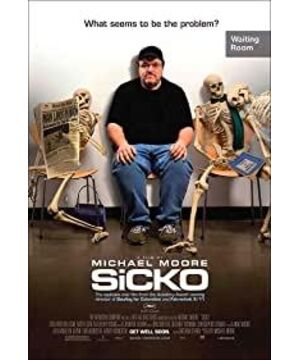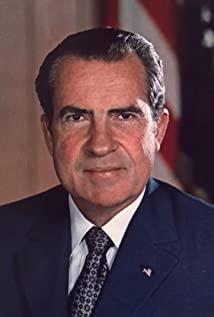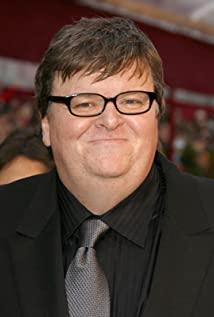Still straight to the point. Sicko, this slang term has two meanings, one is a neurotic and the other is a moral villain, and I think the second meaning is probably Moore's real intention. This film attacking the shortcomings of the US medical system, at a deep level, covers almost all the contradictions of political economy: efficiency and fairness, autocracy and democracy, high taxation and high welfare and low taxation and low welfare, capitalism and socialism... ... if you really want to write it thoroughly, you can produce a series of books. But in order to avoid this article being stinky and long, I still keep the number of words within 3,000! The following is only a personal talk about the political economy of this film.
First, let's start with the medical insurance system. As an important part of Social Security, I divided it into two parts to illustrate.
Let’s take a look at the universal health care system represented by the United Kingdom. The British medical security system started from the Poor Law in 1601, and has developed to the current national health service system covering 99% of the population. As described in the video, the coverage is wide and the variety is comprehensive. However, first of all, there is still such a problem as it shows that "there is no need to worry about the inefficiency of the hospital due to free medical care", as mentioned in the two books "Comparison of Chinese and Foreign Security Systems" and "Details of Democracy" ( Excerpts are omitted to save word count). In efficiency and fairness, Ying obviously focuses more on fairness, but it would be better if it could make use of the correct national values (such as professional ethics) to further improve efficiency. The corresponding reason why the United States is worried about the problem of low efficiency is mainly because the direction of their thinking is that all services are combined with economic interests. When the American people realize that mutual assistance is meaningful and important, it will be much less difficult for their country to establish universal health care.
Secondly, it is worth mentioning that the British library needs to pay huge medical expenses, which has caused huge pressure on the national finances. According to statistics, the financial expenditure of medical security in the UK accounts for 58% of the entire national social security. The bourgeois rulers are not stupid. From 1601 to the present, the British government has also hoped to reduce the expenditure of the national medical security. A typical example is the "Iron Lady". But no matter how drastic the cuts claimed by the Thatcher government were, the actual cuts were few. Because the "compromise" policy of the bourgeoisie towards the proletariat has been implemented for many years, and it is largely believed and relied upon by the people. In order to win votes, political parties have to carefully and meaningfully take care of the feelings of the people. Even with the increasing financial burden on the British government, the government has no other way to cut health care spending. With such a democracy, people can't help but think that China never asks for the government, and the people who are rich and comfortable, China's road to medical reform still needs the participation of the people. Also, don't forget the reason why the British government has been able to maintain a huge health care system after running a budget deficit: a large part I think is their country's issuance of national debt to developing countries. Just because we are weak in international diplomacy, the people of our developing countries have been paying for the social security of the people of developed countries, and their happiness can be "supported" by our hard work.
Then turn our attention to the commercial medical insurance system represented by the United States. The United States used to be a British colony, so before independence, there was actually a prototype of medical security on the American soil, and the influence of the United Kingdom should be relatively deep. Later, when the United States became independent, the trend of liberalism became more prevalent in the United States, and the American people believed that their destiny could be changed through their own efforts and struggles. This is the so-called social Darwinism and liberalism. From the Civil War, to the Great Depression in the 1930s, to the stagnant economic growth in the 1970s and 1980s, until now, the US medical security system has basically continued to improve. But no matter how perfect it is, it is not developing towards a UK-style universal health care system. The strong commercial atmosphere and the reduction policy of the Reagan administration make the current medical insurance in the United States mainly rely on private medical insurance. I checked the medical insurance in the United States on the Internet, which mainly include the medical insurance system for the elderly undertaken by the government, the medical assistance system for special groups, and the private medical insurance system. Under the above system, most ordinary people in the United States provide medical insurance for themselves by purchasing private medical insurance. Private medical insurance lacks the necessary humanistic feelings, which also leads to the various disadvantages of commercial insurance companies in "SICKO". OK. As a for-profit capital company, this is certainly understandable, but watching people live and die is too chilling. What the United States has done badly, in economic terms, is that medical care is a public good and cannot be operated in the same way as a common commodity, because companies aim at maximizing profits, and medical care is not only beneficial to patients, but It is also beneficial to the society, so the intervention of the government is very necessary. And on the other hand, the reason why liberals can't choose an insurance company that is best for consumers by competing on the seller side is that big corporations have formed alliances to lobby America politically so that they can ignore in business The needs of consumers, and the pursuit of interests with confidence and boldness.
The film also mentioned everywhere that the United States used the people's fear of "socialism" to slander medical reform. For ordinary people, universal medical insurance, and then the high taxes that may be levied on individuals, to a certain extent, "communize" their own private property and violate the private sphere of individuals. From the principle of equal rights and responsibilities, this is undoubtedly a choice between high taxation and high welfare or low taxation and low welfare. But it seems too far away for China. China currently seems to be a "third way" with high taxes (relatively obtained) and low welfare. In a pessimistic view, the safest way is to save yourself. After watching the film, my thoughts are how Moore would feel if he came to China to see (of course, with the permission of the propaganda department of our country, and not to be deceived).
To sum up (first of all, it should be clear that it is against all ideological things, the US medical system is not good, and it does not mean that the United States itself is bad), the US medical insurance system is not perfect, but it does not represent the free medical system implemented by other countries. is perfect. Everything has two sides, we can't just focus on the good or bad of one side, and evaluate the pros and cons one-sidedly. Just as the issue of socialism and capitalism implicitly mentioned in the film, "democracy" is the core, both sides should learn from each other's good sides, and paid medical care and free medical care should also learn from each other's strengths. The paid medical system should consider how to broaden the beneficiary group and weaken the commercial operation that maximizes the benefits, while the free medical care should also consider how to improve the efficiency of medical treatment and the level and technology of medical treatment.
Finally, although the realization is difficult, I wish China's medical reform an early success!
View more about Sicko reviews











